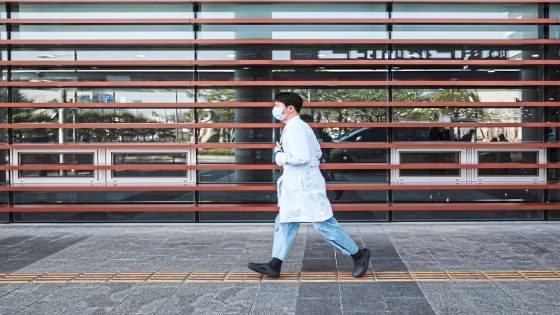AMID an intensifying medical standoff between the government and the medical community over a plan to increase the medical student quota starting next year, some young Korean medical residents are contemplating switching their tracks to cosmetic dermatology or pursuing their careers overseas.
A junior doctor majoring in the essential medical field, who wished to be unnamed, told The Korea Herald that he recently attended a conference on skin care and plastic surgery hosted by the Korean Academy of Aesthetic Dermatology and Cosmetic Surgery.
He said he was among some 500 of his peers, who had all walked out of their jobs in February.
“It’s sad to see those who once had a passion for one of the most needed in the medical sector are slowly turning their gaze to explore a career in the beauty industry,” he said, raising concerns that young aspiring doctors could flock to cosmetic dermatology or aesthetic medicine clinics at a time when the country already lacks access to essential health services.
Currently, those who pass the Korean Medical Licensing Examination can immediately provide medical practice as general practitioners without receiving years of training.
The organisation also said although the conference is usually attended by private cosmetic dermatology doctors to receive cosmetic courses, this year’s event noticed a significant increase in junior doctors compared to previous years.
He declined to comment further on what lectures and booths he and others had visited due to possible disadvantages and inconveniences he could face after walking off the job at his hospital in protest of the government plan. There were reportedly about 80 booths that offered lectures and aesthetic medicine techniques at the event.
The junior doctor, however, said he views the growing interest in cosmetic dermatology treatment as a temporary phenomenon.
“(I think) many junior doctors will (eventually) return to where they belong (after the standoff ends) because (essential medicine) is a competitive field in the medical sector, and a certain amount of income is guaranteed if you finish (the years of) rigorous training,” the junior doctor explained.
Apart from those shunning prestigious specialties, others are hoping to pursue their careers outside Korea, aiming for better working conditions and pay than where they were previously employed, said another junior doctor who left a university hospital in a region outside of the capital area and wished to remain anonymous.
He said that those wishing to relocate abroad are preparing for medical examinations in the United States and Japan, to be specific, without further elaborating. Observers say many are seeking better working conditions and work-life balance.
In terms of working conditions, residents in the US, for example, must do single shifts that routinely last up to 24 hours. They are also expected to spend up to 80 hours weekly at their workplace.
However, a medical resident in Korea may have to work continuously for up to 36 hours and may be required to attend training programs for 40 consecutive hours in an emergency case under the Act on the Improvement of Training Conditions and Status of Medical Residents. The legal limit on their working hours is 88 hours a week, but many have actually worked more than that. Some say they have even worked as many as 126 hours a week, and without adequate compensation.
Regarding pay, resident doctors earned 72.8 million won (RM252,161) as their average annual salary in 2020, according to data provided by Statistics Korea, while the estimated average annual salary for a junior doctor in the US is US$88,761 (RM420,232) per year, according to Glassdoor, a US-based website where current and former employees anonymously review companies.
Meanwhile, medical students are also showing signs of moving to pursue their residencies abroad.
In an April survey of 859 students by To Be Doctor, an organisation made up of medical students, some 41.3% of the respondents expressed their desire to go abroad for residency training, with the US being the most preferred destination. Most of them replied that better treatment in the workplace and higher compensation were the reasons Korea’s junior doctors wanted to receive training overseas. — The Korea Herald/ANN
Source Agencies




